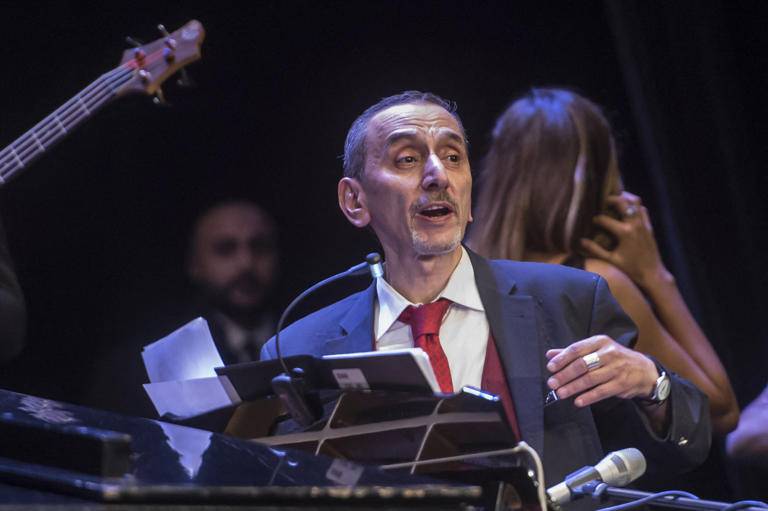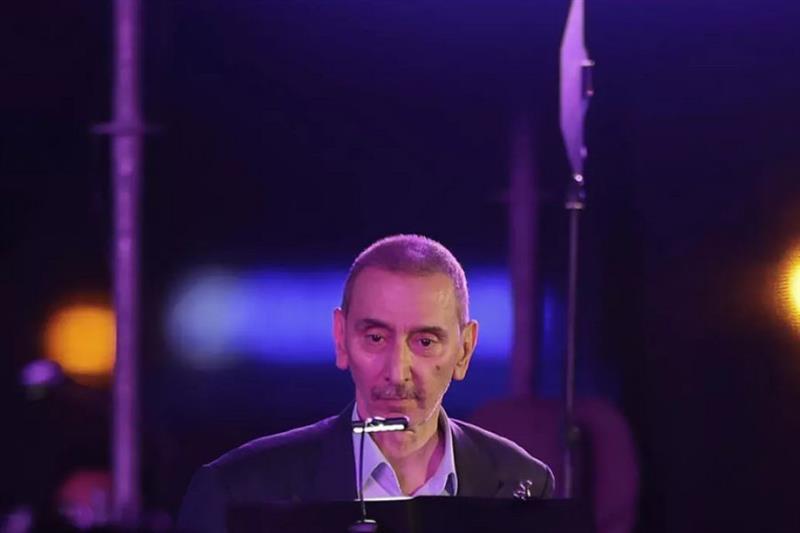Table of Contents
ToggleLebanon mourns Ziad Rahbani, enfant terrible of stage and song

Lebanon is in mourning following the passing of Ziad Rahbani, the uncompromising artistic genius and bold satirist who transformed the country’s music, theater, and political discourse over five decades. Ziad Rahbani, the eldest son of Fairuz and Assi Rahbani, died on Saturday, July 26, 2025, at the age of 69 after a long illness. His death was officially confirmed by a Beirut hospital, and widely reported by local and international media, marking the end of an extraordinary cultural era.
Early Life and Rise to Fame
From the outset, Ziad Rahbani stood out as a singular force in Lebanese culture. Born on January 1, 1956, in Antelias near Beirut into a family already steeped in musical legend, he nevertheless forged a wholly original path. Composing his first song for his mother by age 17, Rahbani’s debut theatrical work Nazl el‑Sourour in 1974 shattered prevailing norms—its biting political satire heralded a new form of theatre that spoke directly to Lebanon’s social injustices and sectarian tensions.
Revolutionary Contributions to Theater
Titles like Sahriyé, Bennesbeh Labokra Chou?, and Film Ameriki Taweel laid bare the absurdities of war, corruption, and elitism. In Ziad Rahbani’s plays, characters were raw, language was bold, and the audience found both mirror and critique. Even decades later, lines from his plays are still quoted by heart—a testament to his enduring cultural imprint.
Transforming Lebanese Music
Ziad Rahbani’s music was equally revolutionary. He fused Arabic folk melodies with jazz, funk, classical Western harmonies, and oriental rhythms—a fusion often dubbed “oriental jazz.” Hits like “Kifak Inta” and “Bala Wala Chi,” many performed by his mother Fairuz, introduced darker, more reflective themes into her repertoire, shifting her image and the wider Lebanese music scene into modern territory.
A Bold Political Voice
Politically, Ziad Rahbani was fearless. A committed leftist and secular thinker, he used satire and song to confront Lebanon’s sectarian system, regional occupation, and political hypocrisy. President Joseph Aoun called him “a living conscience, a rebellious voice against injustice, and an honest mirror reflecting the suffering and marginalized.” Such tributes poured in from political leaders and cultural icons, acknowledging his courage and candor.
Inspiring New Generations
For younger generations, Ziad Rahbani remained relevant even as he withdrew from the spotlight. His old plays resurfaced online, his music featured in protest movements, and his vision inspired new artists revisiting Lebanon’s unresolved dilemmas and identity crises.
Struggles in Later Years
Yet the personal toll was real. In recent years, Rahbani battled declining health and reportedly declined further major treatment, desiring privacy and dignity over intervention. Despite his illness, his influence remained intact, inspiring audiences worldwide.
The Enduring Legacy of Ziad Rahbani
Despite his passing, the legacy of Ziad Rahbani is immense and multi‑dimensional:
- As a composer, he reshaped Lebanese music with his fusion sound.
- As a playwright, he created works that remain vivid, quotable, and reflective of political frustration and social inequality.
- As a public intellectual, he confronted corruption, sectarianism, and authoritarianism.
- As a symbol, he embodied creative defiance and cultural authenticity.
His foundational works like Nazl el‑Sourour, Bennesbeh Labokra Chou?, Film Ameriki Taweel, and Sahriyé remain celebrated, while his songs still resonate with new listeners.
Tributes and National Mourning
In the capital and beyond, Lebanon honors his memory. Public vigils, tribute concerts, and re‑performances of his work are already being organized. President Aoun assured that “Ziad’s exceptional works will remain alive in the memory of the Lebanese and Arabs, inspiring generations to come.”
Conclusion: A Voice That Lives On
In the final reckoning, Ziad Rahbani was more than an enfant terrible of stage and song—he was a conscience of his nation. His bold humor cut through walls of authority; his melodies refracted grief, satire, and memory. As Lebanon mourns him, it also confronts his message: that creativity should challenge, songs should speak truth, and art should hold power to account.

More than sorrow, there is reverence. Ziad Rahbani gave Lebanon a language—musical, theatrical, moral—that continues to speak. While the man may be gone, his voice still echoes.
